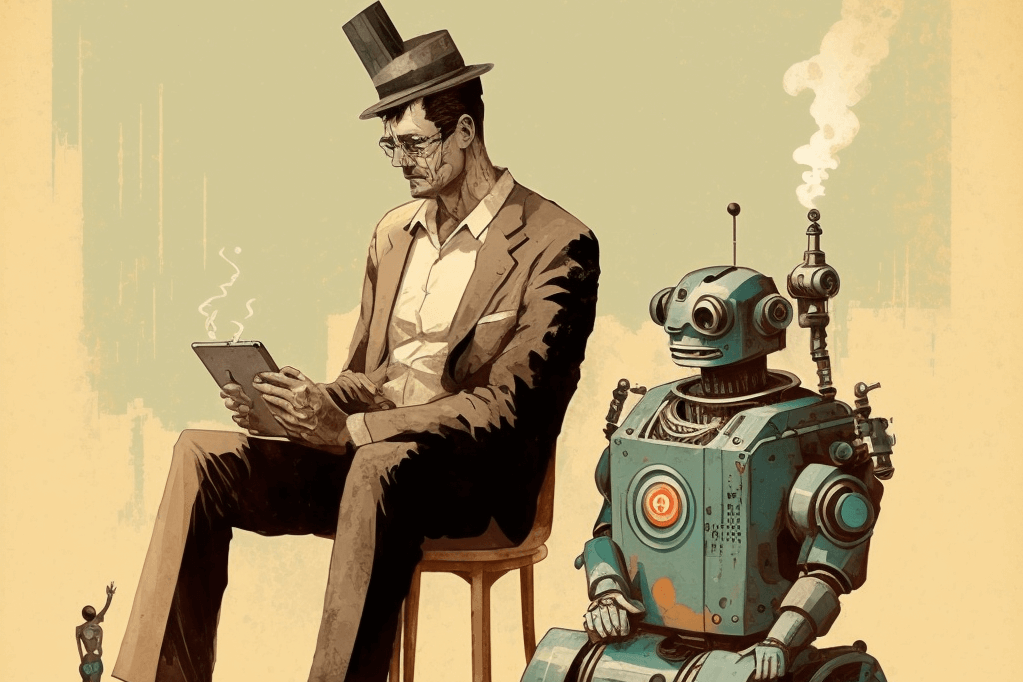We didn’t write the title of this blog.
Well, we did, but we had help – we asked our artificial intelligence software, Jasper, to come up with a list of blog titles, picked the best one, and edited it to suit our needs.
There’s been a LOT of discussion about artificial intelligence (AI) in recent months. Depending on who you believe, it’s either the greatest thing since sliced bread, the worst thing in the world, or something in between.
Here at Eternity, we’ve been exploring AI and how it can help our clients for years – and even more so lately as the technology improves. We know it’s important to think critically about AI and its potential implications for the marketing world.
AI can be an invaluable tool if used strategically and responsibly, and leveraging its capabilities in combination with creative insight from human beings is a must for success. Let’s consider some of the key issues around AI to keep in mind as it’s integrated into the marketing industry and the digital world.
AI Is A Great Way To Start Brainstorming – But It Shouldn’t Do All The Work

The public has been rightfully dazzled by the capabilities of AI. Since November 2022’s release of ChapGPT, folks everywhere can ask a computer any question they want and get a digestible (if not entirely accurate) response.
AI output is generated using natural language processing (NLP), which rewrites existing information in a way that humans can understand. Since AI responses are based on existing publications, they don’t create any new ideas. AI doesn’t have analytical or creative capabilities, and is therefore incapable of constructing original thoughts and insights.
Eternity uses AI for a variety of purposes, such as generating user personas for clients, keywords for Google Ads campaigns, and SEO descriptions for blogs, but only as a jumping off point.
It’s crucial that any business using AI supplement the responses with their own creative spin. AI copy can be fantastic from a technical perspective, but it lacks the nuance, the subtlety, and the human connection that allows a message to really resonate with an audience.
AI Exhibits Bias (Just Like The Rest Of The World)

AI is trained on the information it receives, so the biases of its data (whether conscious or unconscious) are returned in the output of the AI.
Since its data comes from published work past and present, AI reflects the bias that is exhibited in those publications. Add to that the fact that in the tech industry, white males are significantly overrepresented, and it becomes increasingly obvious why the output of AI often casts back a white man’s view of the world.
While big tech companies are aware of AI’s bias and are taking steps to correct it, it’s important for businesses to be vigilant about not perpetuating this bias in their own marketing efforts.
Not only is bias in marketing campaigns wrong from an ethical standpoint, businesses are harming themselves by excluding potential customers via AI bias. Before incorporating AI content into marketing campaigns, it’s important to examine and remove any biased contributions.
AI Isn’t Always Right

Incorrect output from AI can be problematic and lead to a variety of issues ranging from simple mistakes to significant ethical dilemmas. For example, an incorrect output could result in a misinformed decision for a business or inaccurate predictions that lead to real-world consequences.
AI companies admit that their technology doesn’t always get it right – in fact, Google’s AI made a mistake at its own launch event. This particular mistake cost Google billions of dollars, and is a valuable cautionary tale about taking AI output at face value.
AI has been an integral part of Eternity’s Google Ads Headline and Description generation. While it’s produced some wonderful headlines, such as “Personal Rejuvenation Retreats”, it’s also produced some factually inaccurate content. “Free Purebred Puppies” are not something our client offers, yet this was a suggested headline when given the parameters of an ad campaign.
Just as it’s important to edit and proofread our own work, we must also do so with the output of AI. Published content with incorrect information damages the credibility of the publisher (whether the content was written by AI or humans).
AI Is Good – Really Good – At Writing Misinformation
One of the most discussed dangers of AI is its ability to sound credible when writing false information.
AI companies are aware of the danger and are taking steps to prevent their technology from contributing to the spread of misinformation. Jasper, an AI software that Eternity has used for years, refused to deliver a paragraph about how climate change was a hoax, no matter how many different ways we worded the request:

However, as noted in this article, there are numerous examples of AI outputs that contain numerous lies. It is imperative that we continue to question the sources of the information we receive and use.
AI Can Limit User Autonomy

Just because AI can deliver an answer that sounds good doesn’t mean it’s delivering an answer that is good, or is the best answer for the user.
Recent discussion surrounding AI’s impact on search engines deserves consideration.
On one hand, it’s wonderful to be able to ask AI to plan a vacation at a specific price point in a desired area. For example, users who google “Washington DC on a budget” or “5 Star resorts in Jackson Hole” tend to click on the first few results. But they don’t have to do this – they have the option of going through several pages into their search results if they choose and searching for a few different keywords to get a more holistic result and learn everything they want to know.
When you click on a result from searching on your own, you know which website you are visiting and can decide if you trust it or not by using your life experience. But in contrast, by relying exclusively on an AI response, a user is giving up this autonomy.
The Bottom Line

Artificial Intelligence holds so much promise for the future. Using AI technology in development of marketing strategies is something we’ll see grow as the technology improves. When used responsibly and incorporated correctly, AI-driven tech can deliver an almost limitless advantage.
Are you ready to see what AI can do for your business? Let’s connect!



